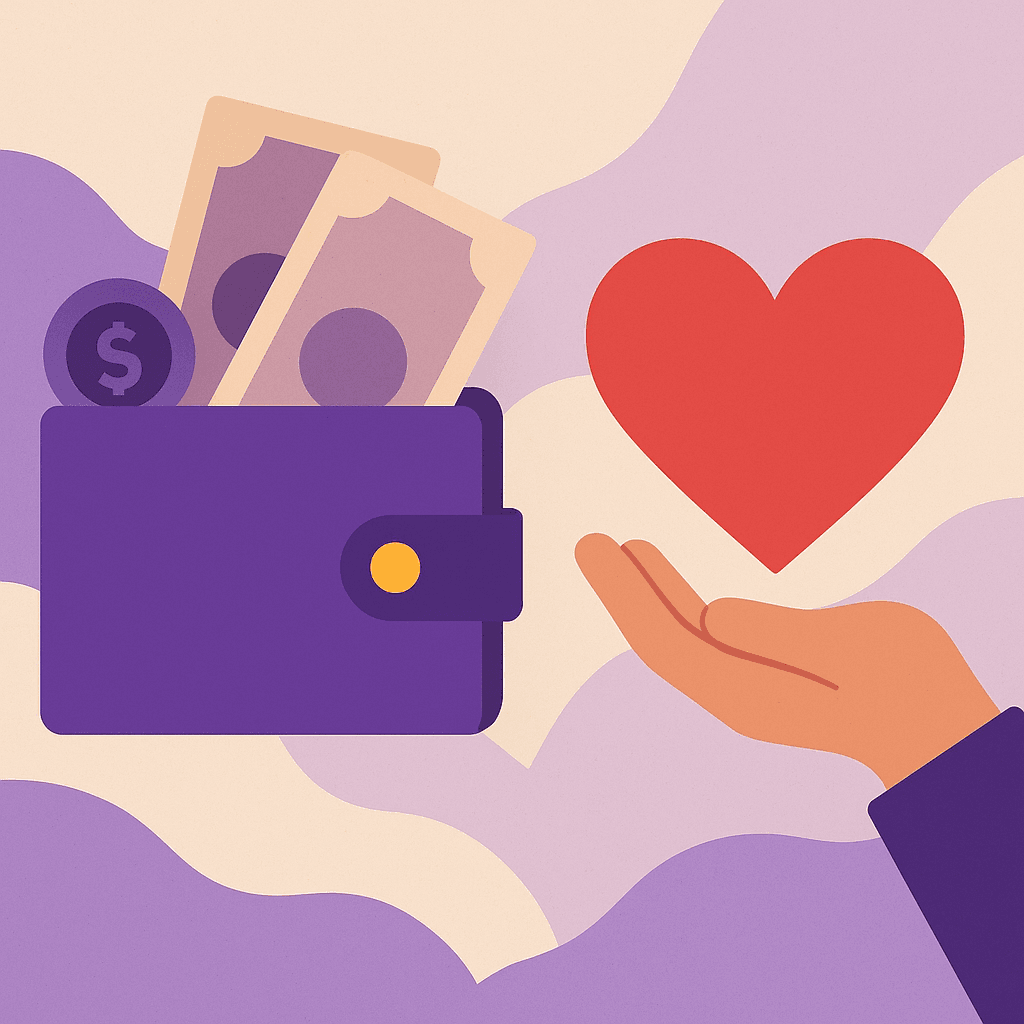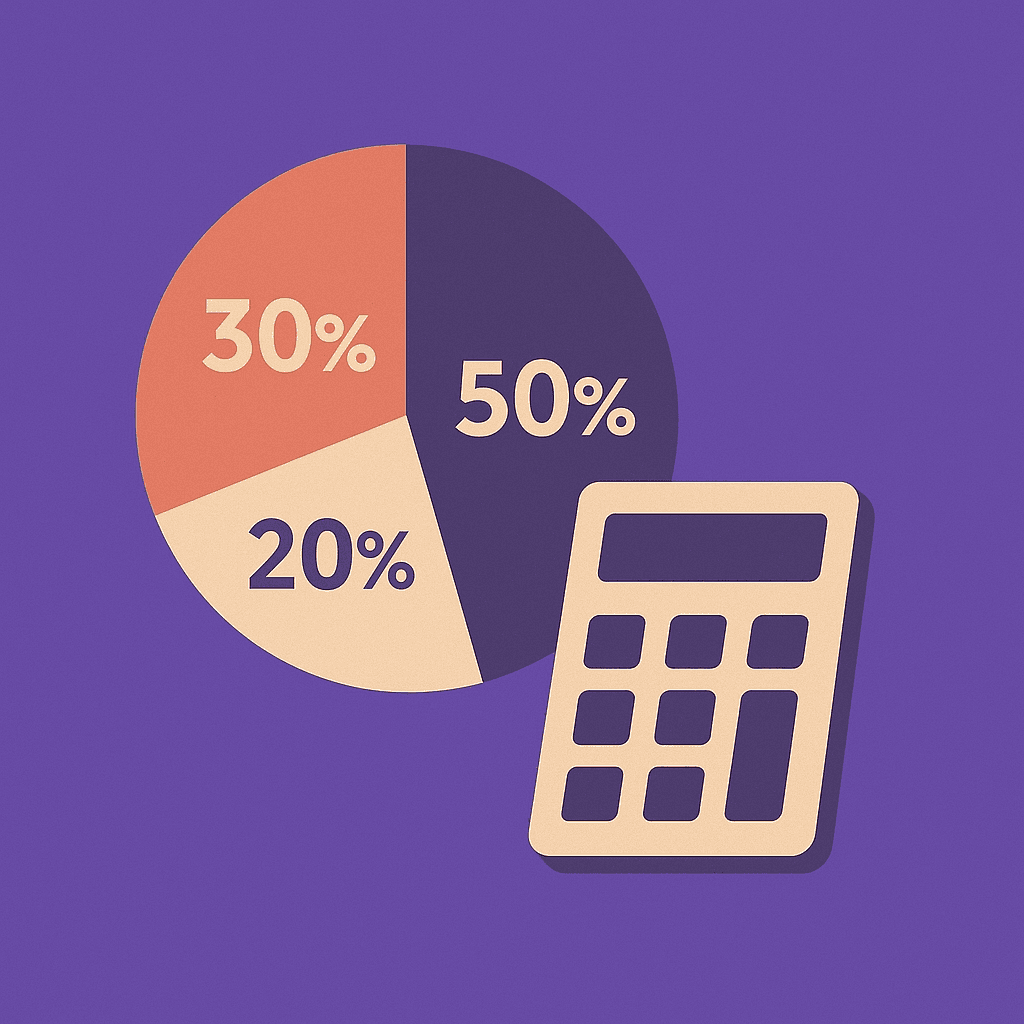No, making a budget doesn't make you stingy

"You really got a coffee... with hot water?"
The tone is mocking, the look a bit heavy. Have you ever heard this kind of remark? Because you preferred the daily menu to the à la carte. Or because you said no to yet another drink at the end of the evening.
Being careful with your spending is still, in the collective imagination, associated with a form of stinginess. As if the simple fact of budgeting, of setting limits, revealed a lack of generosity or spontaneity. And yet...
Budgeting isn't living in black and white. It's quite the opposite: choosing your colors, consciously. It's not saying no to everything. It's learning to say yes to the right things, at the right time, without guilt, without panic at the end of the month.
The problem isn't your budget. It's the weight of others' gaze. This old idea that "those who count don't share." What if we flipped the logic? What if making a budget was precisely a way to open up space for more generosity?
Spoiler: that's what we're going to see together.
Stingy, frugal, or simply organized? Better naming for better understanding
There's a huge difference between being stingy, being frugal... and simply knowing where your money goes. The problem is that we confuse everything.
The stingy person is the one who gives nothing, even when they can. They never offer to split a bill, they sneak away discreetly when it comes time to buy a group gift. It's not that they can't, it's that they don't want to.
The frugal person, on the other hand, chooses to spend less, but for good reasons: simplicity, sustainability, long-term goals. They'll prefer a homemade dinner to eating out every weekend, not because they're cheap, but because they enjoy it, or because they're saving for a more important project.
And then there are those who budget. Those who say: "I can treat myself, but not randomly." Those who plan a weekend with friends, a gift for a loved one, or a massage after an intense period... without it creating financial panic.
Being organized isn't being rigid. It's knowing what matters to you, and making room for it.
In fact, budgeting might simply be being honest with your means. And that's neither selfish nor sad. It's mature.
Budgeting is also giving (to yourself and others)
We often think that a budget is a prison. A series of boxes to fill, a growing list of "no's." When in reality, it's quite the opposite: it's a tool for saying yes, voluntarily, not impulsively.
Giving without guilt
Planning a budget for gifts, for birthdays, for little "just because" moments... that's precisely what allows you to be generous without stress. It's not refusing to participate in a group collection, it's contributing serenely, because it was anticipated.
When you budget, you don't have to choose between paying your bills and treating someone to a birthday dinner. You can do both, because both have been thought through, prepared. And that changes everything: generosity becomes a pleasure, not an anxiety.
Treating yourself without guilt
A well-made budget is a reserved space for the little pleasures you give yourself without scruples. A massage, a restaurant outing, a bookstore trip, or that useless but delightful gadget... These are no longer "splurges": they're conscious choices.
Budgeting isn't depriving yourself. It's freeing yourself from the fog and transforming money into concrete intentions.
Not depending on others
When you don't have visibility on your expenses, you also risk making this fog weigh on your loved ones. You cancel an outing at the last minute, you count on others to pay, or worse: you exhaust yourself trying to keep up with others at a pace that isn't yours.
Budgeting is also a form of respect. For yourself, but also for others. It's saying: "Here's what I can do, here's what I choose." And that's profoundly adult, and profoundly generous.
When budgeting becomes obsession: the line not to cross
Making a budget is healthy. But like any good thing, it can go off track.
There comes a moment when controlling becomes self-control. When every euro spent triggers a mini-feeling of guilt. When you spend more time comparing than living.
When saving becomes an end in itself
Some end up calculating the profitability of every meal, every outing, every gesture. They hunt for deals, put off essential purchases, forbid themselves "useless" outings. The problem isn't that they're saving. It's that they no longer know why.
If the only satisfaction comes from the number in the account, then money is no longer a tool. It's become an obsession. And that's where the budget, instead of freeing, imprisons.
Warning signs
- You feel guilty about a 3€ ice cream.
- You spend an hour looking for a broom that's 1€ cheaper.
- You avoid group outings for fear of spending.
- You have money... but you forbid yourself from enjoying it.
At this stage, you're no longer budgeting to live: you're living to budget. And that's dangerous. For mental health, for relationships, for the joy of living, quite simply.
Getting back to balance
No need to throw everything away. Often it's enough to readjust. Create a "pleasure" category in your budget. Give yourself permission to buy something "useless" but joyful. Set a threshold: below 10€, no need to think for an hour.
And if it's become too heavy? You can also take a break from tracking, or change tools for a less rigid app. The goal was never to control everything. The goal is to live better.
Conclusion: budgeting is loving better
Making a budget is like making a plan for a trip. It's not the end of freedom, it's the beginning of intention.
We think that managing your money is imprisoning yourself. In reality, it's opening yourself to what really matters. It's daring to say no to expenses you endure, to say yes to those you choose. It's refusing the fog, the unexpected endured, the end-of-month anxiety. It's making room for generosity, surprises, lightness too.
Budgeting isn't becoming stingy. It's becoming lucid. And in a world where we're pushed to consume without thinking, that lucidity... might be one of the most beautiful gifts we can give ourselves.
And what if that, actually, was the real luxury?




